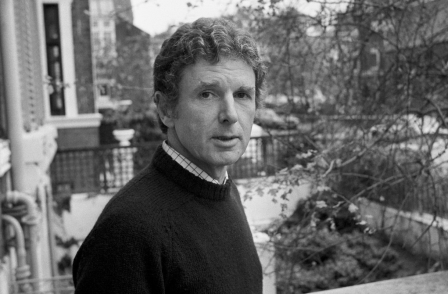
Tributes have been made to "impossible to ignore" Evening Standard art critic Brian Sewell who has died aged 84 and was described by one former editor as "a national institution".
In a statement the Evening Standard said: "All of us at the Evening Standard are so very, very sorry to hear of Brian's death.
"He has been at the heart of the Evening Standard and so dear to our readers for a generation.
"Simply, Brian was the nation's best art critic, best columnist and the most brilliant and sharpest writer in recent times.
"His wit was always rapier sharp but his kindness knew no limits. He was a legend in the world of journalism and the arts. Brian will be deeply missed by all of his colleagues who have thought of Brian more as family than a friend.
"Brian is irreplaceable. We will miss him deeply as will all of our readers."
In a 2013 interview with Press Gazette, Sewell showed he wasn't afraid to criticise his own employer.
He said of the Standard: “It keeps us all informed of Boris and his performances.
“Personally, I think there is a danger that it becomes Boris's newspaper – his newssheet. There is so much about Boris that one wonders, one wonders…”
He added: "My only problem with it is it is largely run by young and inexperienced people."
Standard owner Evgeny Lebedev said: "Very sad to hear of Brian Sewell's death. Remarkable critic and man whose erudite, magisterial work for the Standard will never be forgotten."
Fellow critic Charles Darwent described him as "a great friend and a great critic".
Sewell was born in 1931 in Market Bosworth, Leicestershire, and raised by his mother in Kensington, London, following the suicide of his father, the composer Philip Heseltine.
He was educated at Haberdashers' Aske's boys' school in Hampstead and turned down a place at Oxford University to study at the Courtauld Institute of Art in London.
While there, he became friends with his tutor, art historian Anthony Blunt, the so-called "Fourth Man" in the infamous Cambridge spy ring in the late 1970s.
Sewell had a colourful private life, and memoirs of homosexual experiences as a young gay man in London spoke of "thousands" of lovers.
Professionally, his targets have included the street artist Banksy – who Sewell said "should have been put down at birth" – while he also claimed there "has never been a first-rank woman artist".
He also had a passionate love of dogs, having grown up with one as a pet.
He once said: "The fierceness of my affection is, with age, as resolute as ever. I have lost my interest in cars; I no longer have stamina enough for concerts; I could, at a pinch, give up the exhibitions that are my means of earning a living; but I could not bear to be without dogs and I hope that when I die it will be with dogs on my bed."
Francine Fletcher, his agent for more than two decades, confirmed his death on Saturday morning. She said: "Very sadly, I can confirm Brian Sewell passed away at his home in London this morning.
"I think most people knew he had a very long illness, cancer."
Mail on Sunday editor Geordie Greig recalled his first encounter with Sewell after he became editor of the Evening Standard in 2009.
He wrote: "'I expect you want to fire me,’ were the first words that Brian Sewell ever said to me, the day I became editor of the London Evening Standard. ‘I’m prepared to go, just tell me when. I’ll do whatever is needed to save the paper.'
"The paper was having financial difficulties but the last thing I wanted was to lose its most famous writer. He was, even then in 2009, an art critic who was a national institution.
"What marked him out was learning, populism – and fearlessness. As well as that voice. The art world includes many toadies and wearers of the emperor’s new clothes; he was not one of them. He was universally seen as the impossible-to-ignore art critic."
Email pged@pressgazette.co.uk to point out mistakes, provide story tips or send in a letter for publication on our "Letters Page" blog
